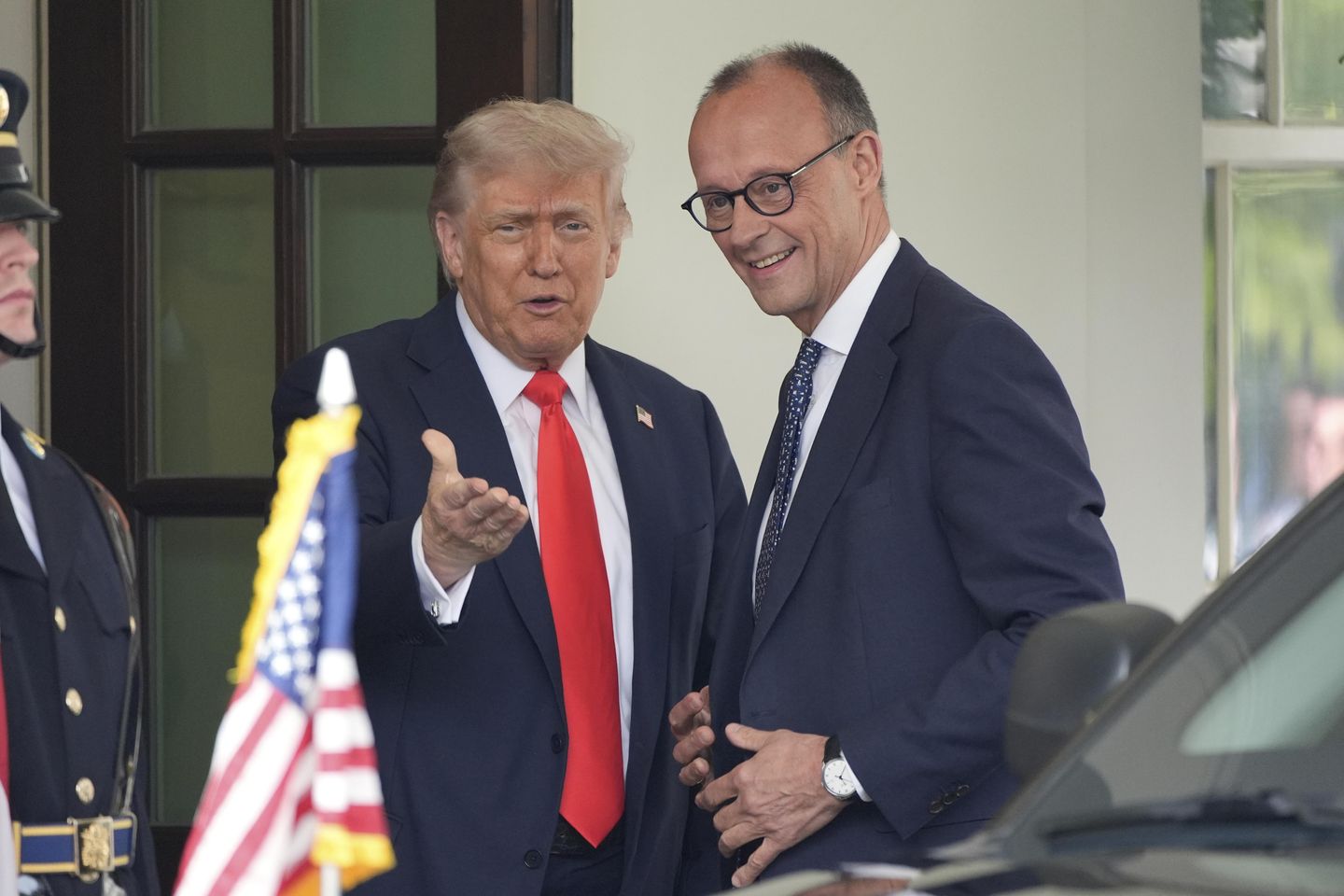
President Trump and German Chancellor Friedrich Merz on Thursday said they share a common goal of ending the Russia-Ukraine war, though there was less agreement on how to get there.
Mr. Merz, seated next to Mr. Trump in the Oval Office, said the president has to play a lead role in restoring peace in Eastern Europe.
“We are all looking for instruments to bring this war to an end,” said Mr. Merz. “America is in a very strong position to do something. Let’s talk about what we can do jointly.”
He said Germany and other European Union leaders are ready to “do what we can.”
“As you know, we are looking for more pressure [on] Russia,” he said, adding that Mr. Trump is “the key person in the world” who can stop the war by “putting pressure on Russia.”
The German leader asserted that Ukraine and Russia are not holding to the same military standards in the war.
“Ukraine is only targeting military targets, and not civilians,” he said.
Mr. Trump, who spoke to Mr. Putin on Wednesday following a stunning, surprise Ukrainian drone attack on air bases inside Russian territory on Sunday, said that Mr. Putin got “hit hard.”
“He’s been doing hitting, so I understand it, but he got hit hard, and I don’t think he’s playing games,” Mr. Trump said. “I think I’ve always said he wanted the whole thing. I thought he wanted everything having to do with Ukraine.”
He said the Russian invasion that began more than three years ago during the Biden administration is “something that would have never happened if I were president.”
Mr. Trump repeated his frustration about the casualties, saying “the amount of death in that war is far greater than the news has been reporting, or that, frankly, that either side has been reporting.”
He said, “It’s a very sad thing, and I can tell you just speaking for the chancellor, because we speak about it. He feels the same way. He wants to see it ended.”
Mr. Merz met last week with Ukrainian President Volodymyr Zelenskyy in Berlin, where he announced Germany will increase its support of Ukraine by sending more military equipment and increasing weapons manufacturing in Kyiv.
The phone call on Wednesday between Mr. Trump and Mr. Putin lasted more than an hour, and Mr Trump said Mr. Putin vowed to retaliate against Ukraine’s successful drone attack.
Kremlin aide Yury Ushakov told reporters in Moscow that the two leaders pledged to keep the lines of communication open.
In the Oval Office on Thursday, Mr. Trump commended Germany for deciding to increase its defense spending. He also opened the door to talks about keeping American troops in the NATO countries.
“I know that you’re spending more money on defense now and quite a bit more money; that’s a positive thing,” said Mr. Trump, who has long demanded NATO allies pay more for their defense.
Mr. Trump originally pegged NATO allies’ fair share at 2% of gross domestic product and later raised it to 5%.
German lawmakers recently announced they would boost military spending to 5% of GDP.
Mr. Trump said the U.S. military presence in Europe, specifically in Germany, should be a subject of debate.
“We have a lot of [troops in German], about 45,000. It’s a lot of troops. It’s a city,” Mr. Trump said. “And you think that’s good economic development? They’re highly paid troops, and they spend a lot of money in Germany, but the relationship with Germany is very important.”
American service members have been stationed in over 40 military installations in Germany since the end of WWII.
When the Berlin Wall fell in 1989, the U.S. presence in Germany stood at 250,000 military personnel, with as many civilian employees and family members.












